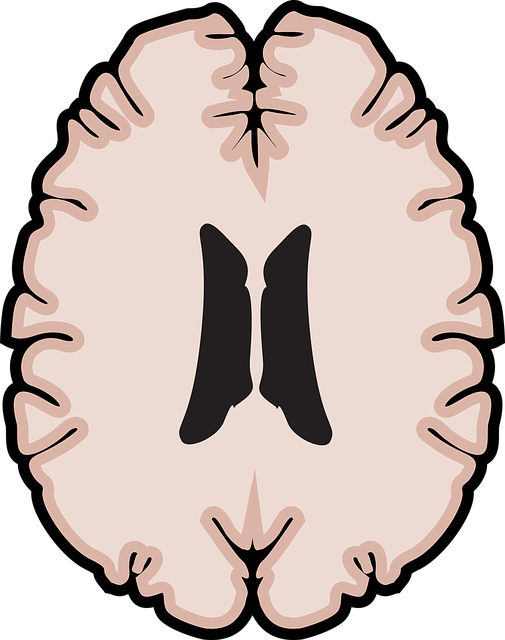Littleton Independent Medical Evaluations (IMEs) Therapy offers a structured Resilience Framework (RFM) to enhance emotional well-being. This approach assesses Reach (emotional accessibility), Strength (coping mechanisms), and Motivation, enabling personalized therapy with exercises like mindfulness meditation. IMEs integrate into treatment plans, provide data for tailored interventions, reduce stigma, and advocate for better mental health policies. Through assessing emotional landscapes, developing strengths, and promoting adaptability, the RFM principles empower individuals to thrive amidst adversity. Littleton's holistic strategy combines IMEs and personalized therapy, revolutionizing mental health care by targeting root causes for lasting resilience and stability.
“Resilience is a vital component of emotional well-being, especially in navigating life’s challenges. This article explores the Revolutionary RFM (Resilience, Flexibility, and Mobilization) model as a powerful framework for enhancing resilience. We delve into its assessment tools, including the role of independent medical evaluations in therapy, and offer practical strategies.
From designing effective exercises to integrating RFM into clinical practice, therapists can empower clients. Case studies highlight successful approaches, such as Littleton’s methodology, showcasing how tailored therapy and evaluations foster resilience. Discover actionable insights for improving patient outcomes through this transformative process.”
- Understanding RFM: A Framework for Resilience Assessment
- The Role of Independent Medical Evaluations in Therapy
- Designing Effective Resilience Building Exercises
- Integrating RFM into Clinical Practice: Strategies for Therapists
- Case Studies: Littleton's Approach to Enhancing Resilience
Understanding RFM: A Framework for Resilience Assessment

Resilience is a vital asset for navigating life’s challenges and traumas. Understanding Resilience (RFM) provides a structured approach to assessing and enhancing this inner strength. This framework, often utilized in therapy practices like those offered by Littleton Independent Medical Evaluations, focuses on three key components: Reach, Strength, and Motivation.
Reach refers to an individual’s ability to access their emotional range, acknowledging and accepting all feelings without judgment. Strength pertains to the coping mechanisms and personal resources one possesses, while Motivation drives the journey towards building resilience. By evaluating these aspects, professionals can tailor therapy and exercises, such as mindfulness meditation, to foster inner strength development. This holistic approach ensures individuals not only survive but thrive in the face of adversity.
The Role of Independent Medical Evaluations in Therapy

In the realm of therapy and mental health treatment, Littleton Independent Medical Evaluations (IMEs) play a pivotal role in enhancing the effectiveness of care. These evaluations provide an objective assessment of a client’s physical and psychological state, offering valuable insights that can guide therapists and healthcare professionals. By integrating IMEs into therapy practices, practitioners gain access to comprehensive data, enabling them to tailor interventions and treatment plans specifically to each individual’s needs. This personalized approach is essential for promoting emotional well-being and addressing complex mental health concerns.
Beyond their practical application in therapy, IMEs contribute to broader efforts such as Mental Illness Stigma Reduction Efforts and Mental Health Policy Analysis and Advocacy. Independent assessments help challenge stereotypes associated with mental health conditions by presenting unbiased evidence of an individual’s capabilities and limitations. This data is instrumental in shaping public policies and advocating for improved access to quality mental health services, ultimately fostering a more supportive societal environment that prioritizes emotional well-being promotion techniques for all individuals.
Designing Effective Resilience Building Exercises

Designing effective resilience building exercises is an art that involves understanding the unique needs and challenges of individuals or groups. At Littleton Independent Medical Evaluations Therapy, we believe in tailoring these sessions to foster self-esteem improvement and inner strength development. The first step is to assess the current emotional landscape and identify areas where resilience can be strengthened. This might include addressing past traumas, improving coping mechanisms, or enhancing positive thinking strategies.
The exercises should be designed to promote a sense of empowerment and control over one’s emotions and responses. Engaging activities that encourage problem-solving, creative expression, and social connection are particularly effective. By incorporating these elements, individuals can build mental fortitude, enabling them to navigate life’s challenges with greater ease and adaptability. This holistic approach, combined with professional guidance, ensures that participants not only survive but thrive in the face of adversity.
Integrating RFM into Clinical Practice: Strategies for Therapists

Integrating RFM (Resilience, Flexibility, and Mastery) into clinical practice offers therapists a powerful tool to enhance their clients’ mental wellness. For professionals conducting Littleton Independent Medical Evaluations, incorporating RFM principles can significantly improve therapy outcomes. This approach focuses on building resilience by encouraging individuals to embrace challenges as opportunities for growth, fostering flexibility in coping strategies, and promoting a sense of mastery over one’s life.
By integrating RFM into their practice, therapists can provide tailored guidance such as Mental Wellness Journaling Exercise and Social Skills Training. These exercises empower clients to navigate life’s complexities with greater ease, enabling them to manage stress and adversity effectively. Trauma Support Services can also benefit from this approach, helping individuals process traumatic experiences while cultivating resilience, ultimately leading to more fulfilling lives.
Case Studies: Littleton's Approach to Enhancing Resilience

Littleton’s unique approach to enhancing resilience through independent medical evaluations and therapy has been a game-changer in the mental health landscape. Their comprehensive strategy involves integrating physical and emotional well-being, addressing not just symptoms but the root causes of distress. This holistic method includes regular assessments tailored to individual needs, focusing on emotional regulation and mental health awareness.
By utilizing these independent medical evaluations, Littleton provides individuals with a clear understanding of their emotional intelligence and resilience levels. Through targeted therapy sessions, they empower clients to develop coping mechanisms that foster adaptability and emotional stability. This evidence-based practice has proven successful in building a resilient community, demonstrating the power of combining specialized medical evaluations with compassionate therapy for long-lasting mental well-being.
Resilience is a key component of overall well-being, and the RFM (Resilience, Flexibility, and Mastery) framework offers a comprehensive approach to assessing and enhancing it. By integrating RFM into clinical practice, therapists can design tailored resilience-building exercises that empower individuals to navigate life’s challenges effectively. As demonstrated by Littleton’s innovative approach, combining RFM with independent medical evaluations in therapy creates a holistic treatment strategy. This method not only improves therapeutic outcomes but also fosters long-lasting resilience, enabling clients to embrace a more fulfilling and resilient lifestyle.













